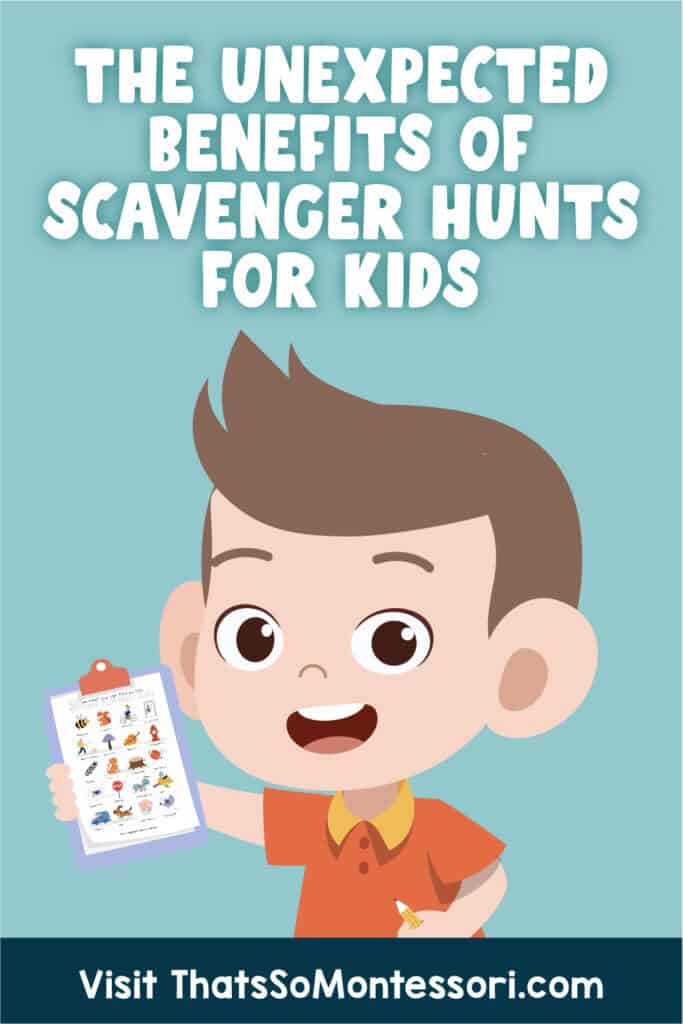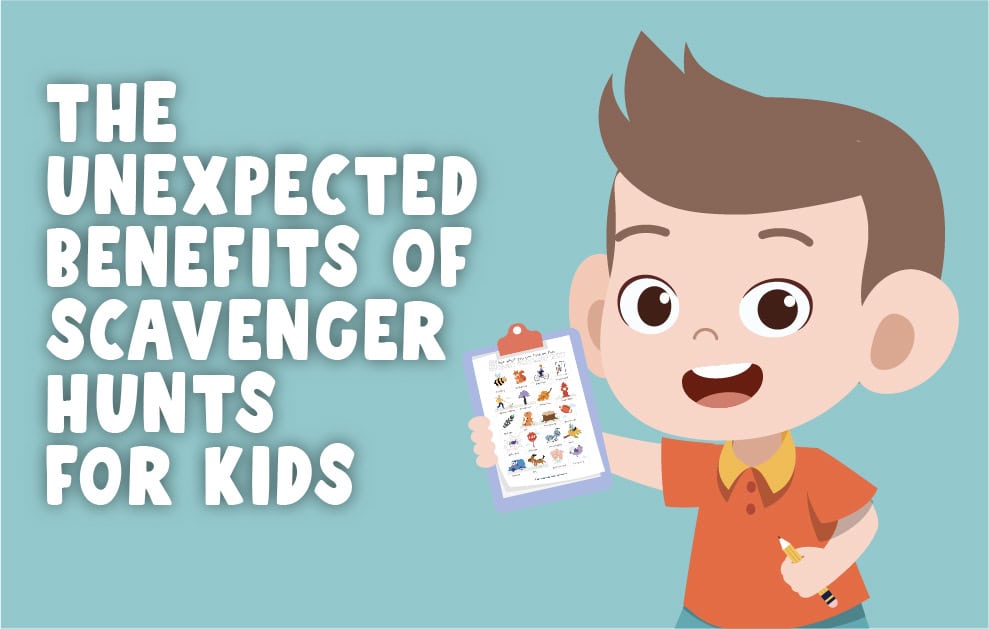9 Unexpected Benefits of Scavenger Hunts for Kids
When it comes to the benefits of scavenger hunts, it’s important to note that they are more than just an enjoyable pastime; they’re a great educational tool, especially for elementary learners.
As a Montessori elementary teacher and a step-mom, I’ve witnessed firsthand the allure of scavenger hunts and the joy they bring to students. However, I also recognize the valuable learning opportunities and teachable moments they provide.
Before we take a look at how scavenger hunts can benefit elementary learning, let’s clarify what they are.
Scavenger Hunts Explained
Scavenger hunts are engaging games where individuals or teams compete to collect specific items or complete tasks from a predetermined list. Organizers create lists that often include a mix of common and unusual items, challenging participants to think creatively and problem-solve to find them.
These hunts can take place in all sorts of places, in outdoor settings like parks or a neighborhood walk scavenger hunts and indoor venues like a scavenger hunt in a library or classrooms. Participants may need to obtain items, take photos, or gather information, depending on the rules set by the organizers.
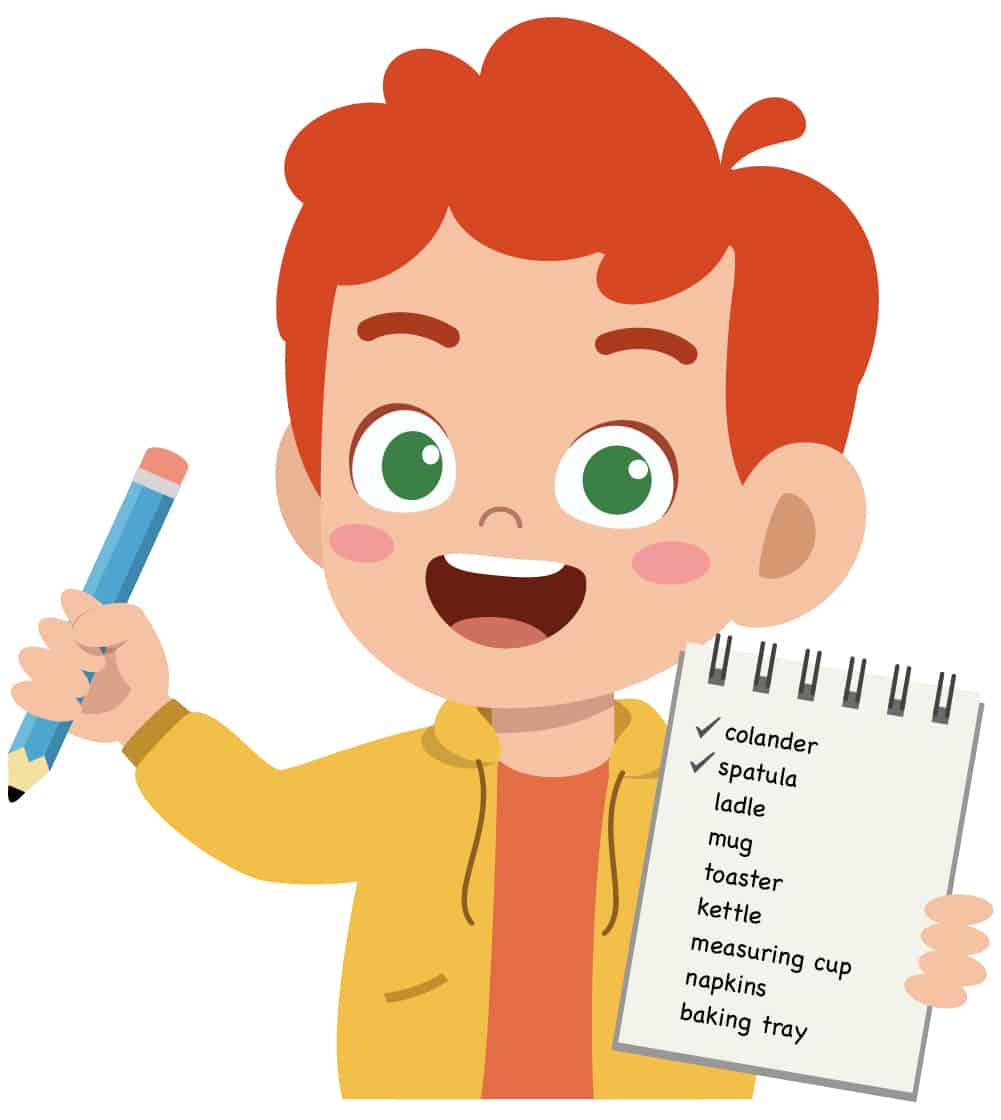
The winner of a scavenger hunt depends on which type of scavenger hunt you are playing, an item-based scavenger hunt or a clue-based scavenger hunt. Typically the first person or team to collect all items on the list or the one who gets through all of the clues first wins.
Scavenger hunts are interactive activities that encourages teamwork, critical thinking, and exploration of different environments.
While the origins of scavenger hunts trace back to the 1930s, when gossip columnist and author Elsa Maxwell popularized them as party games, they’ve since evolved into a beloved tradition enjoyed by many.
Whether you’re searching through your kitchen cabinets or embarking on a scavenger hunt in the classroom, everyone involved walks away a winner, having enjoyed both the fun of the activity and the learning experience it provided!
9 Benefits of Scavenger Hunts
Scavenger hunts offer a wealth of benefits, from enhancing cognitive and physical skills to fostering teamwork and problem-solving.
Let’s take a deeper look at some of these benefits:
1. Enhance Cognitive Skills
Engaging in scavenger hunts actively stimulates cognitive development in children. These adventures provide an excellent platform for honing problem-solving abilities as kids decipher clues and strategize to overcome challenges.
Remembering clues, locations, and items sharpens memory retention, a crucial cognitive skill for learning and everyday tasks. On top of that, navigating through different environments during scavenger hunts enhances spatial awareness and understanding of surroundings.
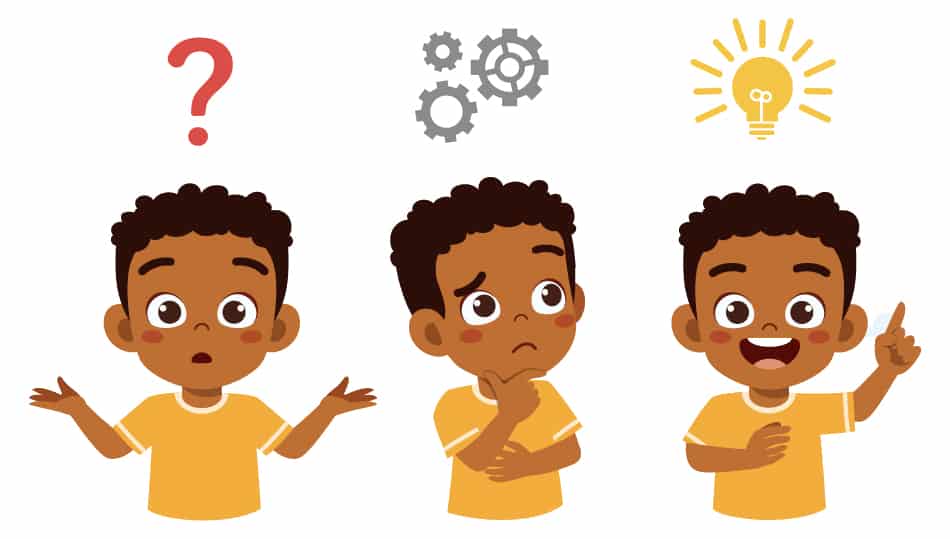
Searching for specific items demands careful observation, training children to pay attention to details, both big and small. Moreover, adapting to unexpected twists or changes in the scavenger hunt promotes flexibility and resilience in problem-solving approaches.
Through these activities, children not only have fun but also build essential cognitive skills that serve them well in various aspects of life.
2. Develop Decision-Making Skills
Scavenger hunts require children to solve problems and make decisions about how to find the next item or clue. This will help improve their problem-solving skills and their ability to make decisions.
For example, with our neighborhood walk scavenger hunt card game, bonus points are up for grabs for finding specific objects. Participants need to make some big decisions to score big points.
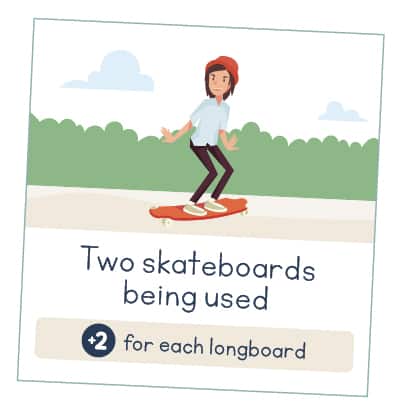
Looking at the ‘two skateboards being used’ card from the set, 1 point is rewarded for finding two skateboards being used.
But let’s say a player has found one skateboard but still needs to find one more to get that point. If they see someone skateboarding, do they take it and solidify their one point OR do they hold out and try and get 2 bonus points for finding someone on a longboard?
Decisions, decisions!
Participating in scavenger hunts offers children valuable opportunities to refine their decision-making skills, equipping them with important abilities for future endeavors.
3. Promote Physical Activity
Scavenger hunts aren’t just about flexing mental muscles; they’re also fantastic for getting kids moving! Whether indoors or outdoors, these hunts have kids climbing, running, and exploring to crack clues and find items.
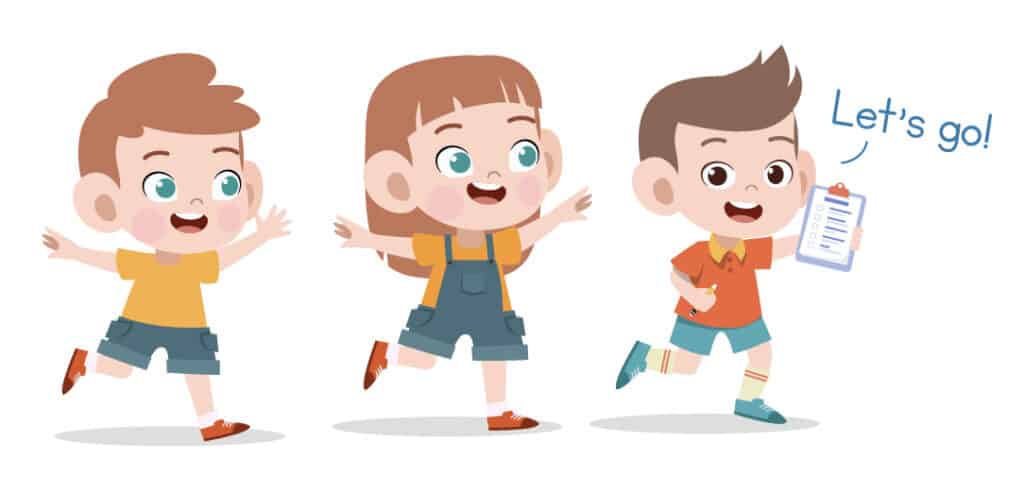
In today’s screen-dominated world, scavenger hunts offer a welcome chance for physical activity. They get kids off the couch and into active play, whether they’re exploring a park, school grounds, or their own neighborhood.
So, while kids enjoy the thrill of the hunt, they’re also reaping the benefits of staying active and healthy.
4. Improve Sensory Development
Get kids to engage in Montessori-aligned scavenger hunts for a sensory-rich learning experience. These activities provide children with hands-on exploration whether they’re indoors or out in nature.
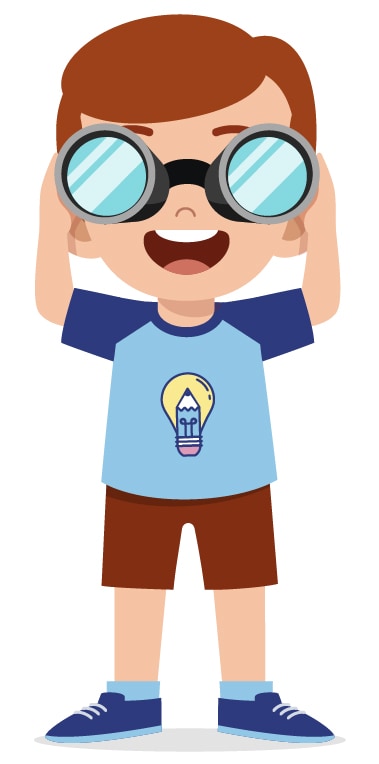
By challenging children to use all their senses to locate specific objects, scavenger hunts promote the development of visual, auditory, tactile, and olfactory perception skills.
This hands-on exploration deepens their connection with their surroundings. It also fosters essential sensory development, showcasing the valuable benefits of scavenger hunts in facilitating holistic growth and learning.
5. Foster Teamwork and Social Skills
Scavenger hunts often involve teamwork and working together, which is great for kids to learn important social skills.
When kids team up during scavenger hunts, they learn how to share tasks and talk nicely to each other to finish the hunt. They develop a deeper understanding of the value of cooperation, communicating well, and helping each other reach their goal.
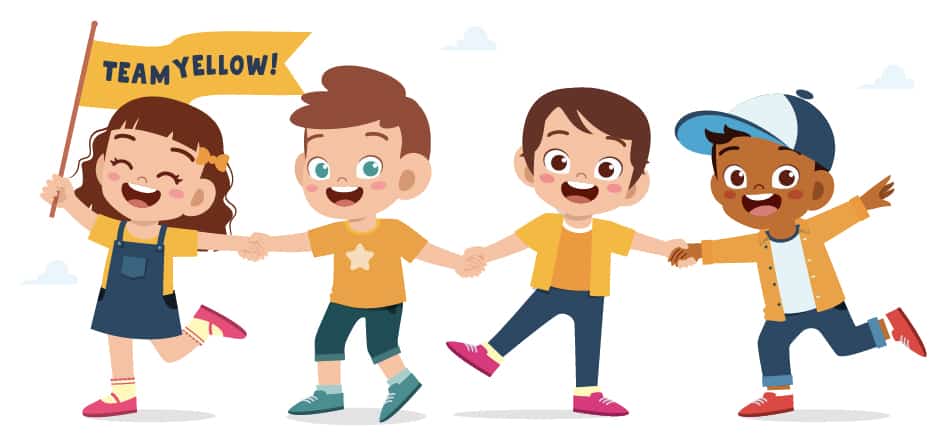
Scavenger hunts also teach kids about being good sports and dealing with both winning and losing. Plus, as they interact with others during the hunt, they practice listening, respecting others, and compromising – skills that help them make friends and get along better with others.
Not only are scavenger hunts exciting adventures but they’re also invaluable for teaching kids teamwork and social skills. These skills are crucial for their growth and development as they navigate the world around them.
6. Stimulate Imagination and Creativity
Scavenger hunts aren’t just about finding items; they’re about sparking kids’ creativity and imagination. These hunts present challenges that prompt children to think outside the box and come up with innovative solutions.
Whether it’s decoding clues, strategizing their search, or inventing new approaches, scavenger hunts offer a chance for kids to flex their imaginative muscles.
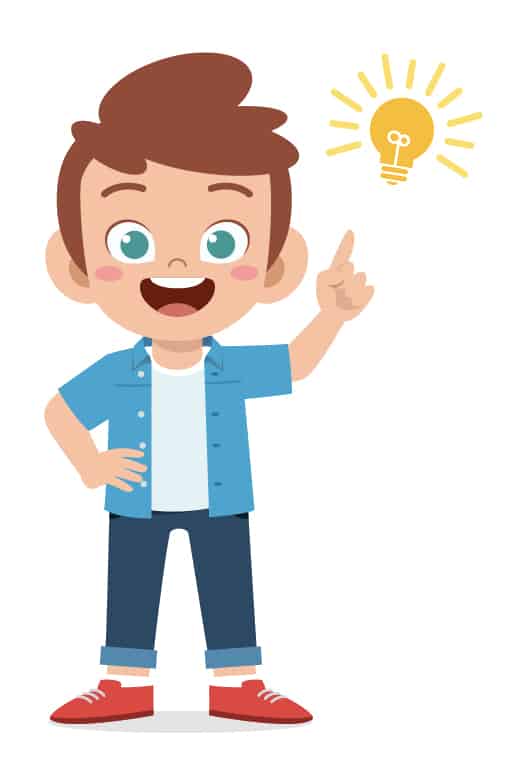
Scavenger hunts also encourage children to explore their surroundings with curiosity and inventiveness. Instead of following a set path, kids are prompted to consider different perspectives and uncover unexpected surprises.
This process not only nurtures creativity but also fosters a sense of excitement as children embark on thrilling adventures and discover hidden treasures.
7. Build Confidence and Independence
Engaging in Montessori-aligned scavenger hunts ignites a sense of adventure and cultivates confidence and independence in children. As kids set off on a scavenger hunt, they’re encouraged to trust their instincts and rely on their problem-solving skills to decipher clues and uncover hidden treasures.
Successfully completing these hunts instills a sense of accomplishment, boosting their self-confidence and reinforcing their belief in their abilities.
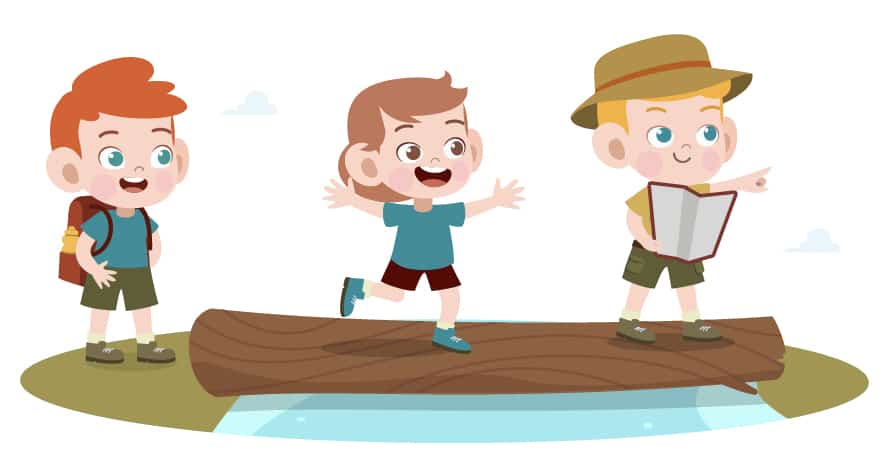
Scavenger hunts also encourage independence by letting kids take control of their own learning. As they explore, make decisions, and solve problems on their own, children learn to rely on themselves and become more self-sufficient.
This hands-on learning activity encourages them to explore, experiment, and discover solutions on their own, fostering a sense of empowerment and independence that extends beyond the hunt itself.
8. Provide Learning Opportunities
Scavenger hunts blend fun with education seamlessly. These adventures, often designed with educational themes, provide a valuable platform for expanding young minds.
During scavenger hunts, kids naturally engage in reading and comprehension as they decode clues and instructions, enhancing their literacy skills without even realizing it.
Moreover, themed hunts offer an interactive and memorable way to explore new concepts.
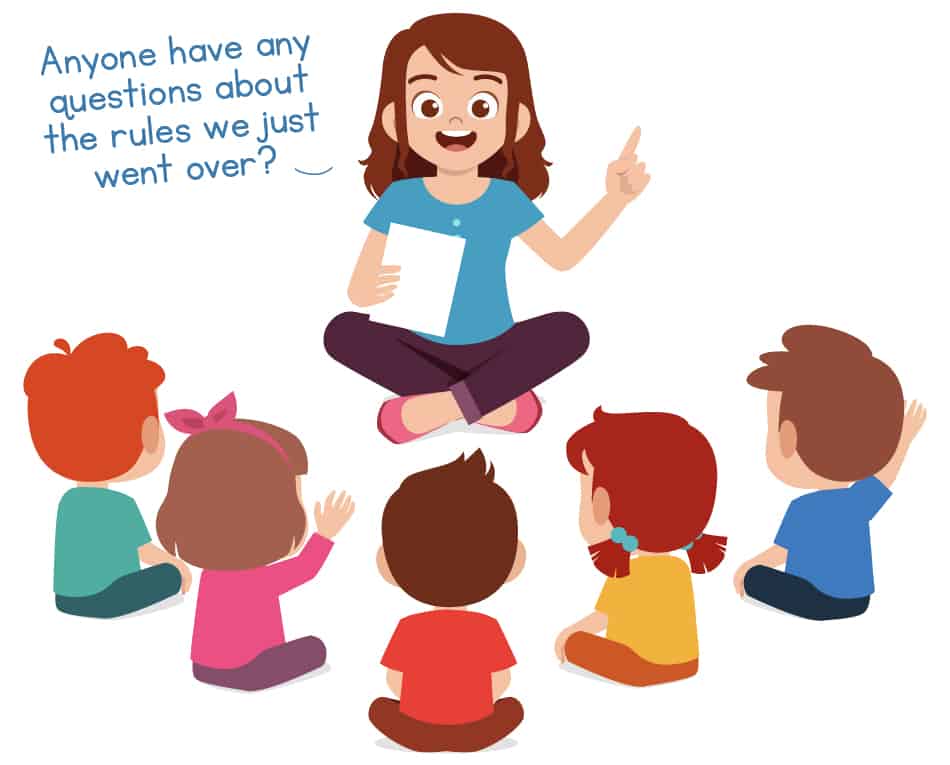
For example, a nature-themed scavenger hunt becomes a captivating lesson on biodiversity, introducing children to different plants and animals while fostering a deeper connection with the natural world. Similarly, a history-themed scavenger hunt offers insights into historical facts and landmarks, sparking curiosity and igniting a passion for learning.
In essence, scavenger hunts are not just about entertainment – they’re an educational adventure filled with teachable moments.
9. Offer Fun Through Learning in Disguise
With scavenger hunts, kids are offered fun through learning in disguise because they provide a playful and engaging way for children to learn without them realizing that they are actually learning.
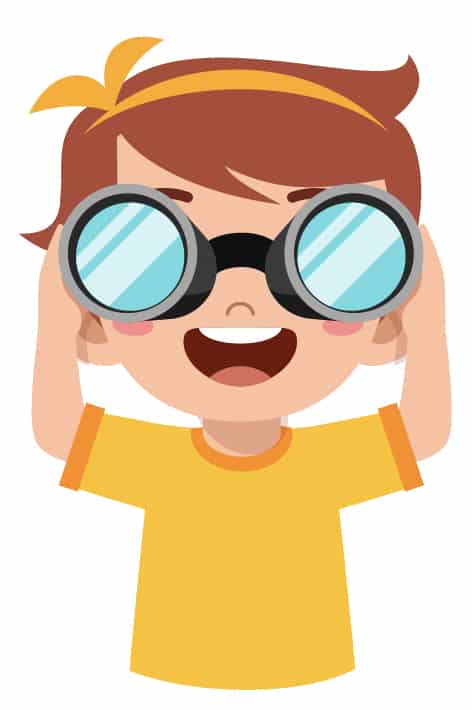
Participants are excited to explore and feel a sense of satisfaction when they check something off their list. And without even knowing it, they are expanding their understanding of the world around them as they are having fun.
In some scavenger hunt games, like the neighborhood walk card game we created, participants are also doing math, keeping track of how many items are found, and considering bonus points.
By combining play and education, scavenger hunts can help children develop a love for learning and improve their knowledge and skills in a way that feels like fun rather than work.
As you can see, scavenger hunts offer a multitude of benefits for elementary-aged kids, enriching their lives with fun-filled adventures while fostering important skills and experiences.
We hope this list has opened your eyes to the many ways scavenger hunts can positively impact the elementary childs’ learning, growth, and development.
Essential Elements for a Great Scavenger Hunt
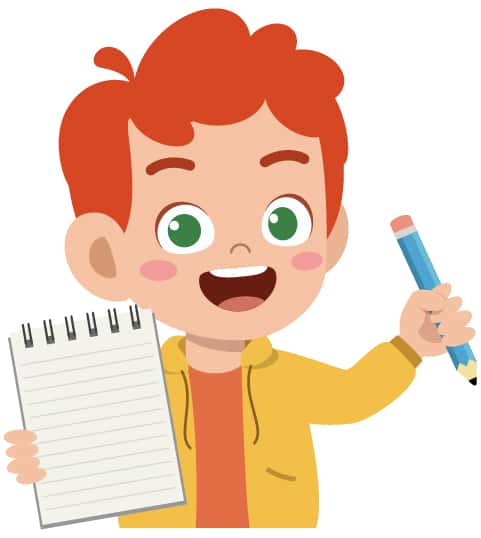
A great scavenger hunt for kids typically incorporates several elements to ensure it’s both fun and engaging. It often fulfills most, if not all, of the following criteria, highlighting the benefits of scavenger hunts for kids:
With these elements, a scavenger hunt can be a thrilling and exciting activity that brings children in the second plane of development together to explore and discover.
National Scavenger Hunt Day
Did you know that there is a day dedicated to celebrating scavenger hunts? We even wrote a whole blog about it!
National Scavenger Hunt Day is celebrated every year on May 24th.
The purpose of this playful day is to encourage people to have fun, engage with their surroundings, and foster teamwork and camaraderie.
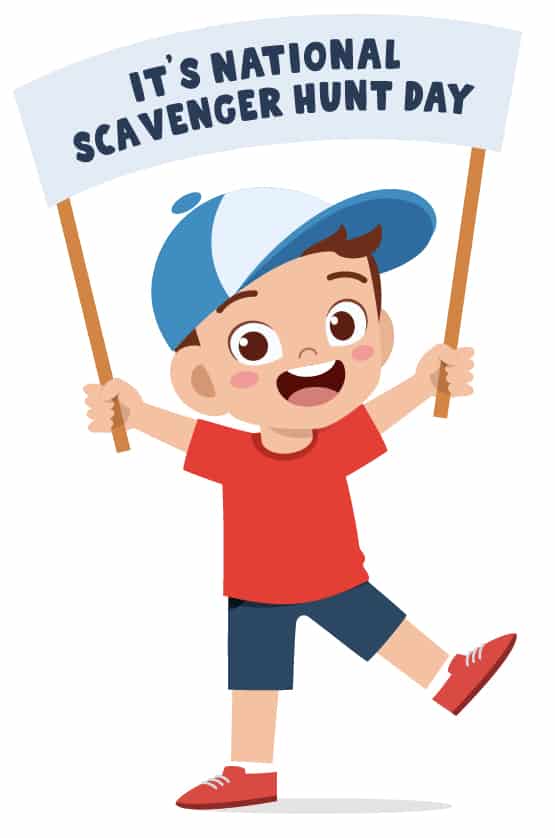
Scavenger hunts have been enjoyed for centuries and loved by people of all ages worldwide. They gained popularity in the 1930s when they became a hit at parties in the United States.
Since then, scavenger hunts have become a favourite for school events, team building, and social gatherings.
National Scavenger Hunt Day celebrates the joy of social interaction, outdoor fun, and problem-solving.
Take a look at our Scavenger Hunt Products designed for elementary-aged kids. Join the fun and create lasting memories with friends and family!
The Wrap-Up: Benefits of Scavenger Hunts for Kids
It’s clear that scavenger hunts offer a variety of advantages for children. From promoting physical activity and teamwork to stimulating creativity and problem-solving skills, scavenger hunts provide a holistic learning experience that fosters growth and development.
So, the next time you’re planning an activity for kids, remember the multitude of benefits that come with a scavenger hunt. It’s more than just a game, it’s an activity packed with opportunities for learning and fun.
Keep your kids busy learning with the activities in these blogs:
11 Ways to Use Our Roll A Story Dice Game
57 Epic Montessori-Aligned Spring Break Activities for Your Kids
13 Engaging Vocabulary Development Activities for Elementary Kids
Rebus Puzzles for Kids: A Comprehensive Riddle-Solving Guide
9 Unique Rebus Puzzles with Answers for Kids
31 Fun Summer Reading Activities Elementary Students Will Love
The Best Neighborhood Walk Scavenger Hunt & 13 Different Ways to Use It
8 Easy Rebus Puzzles with Answers
Score Big with These 9 Super Bowl Classroom Activities
27 Educational YouTube Channels to Prevent Summer Learning Loss
Save this blog for later by pinning it now!
